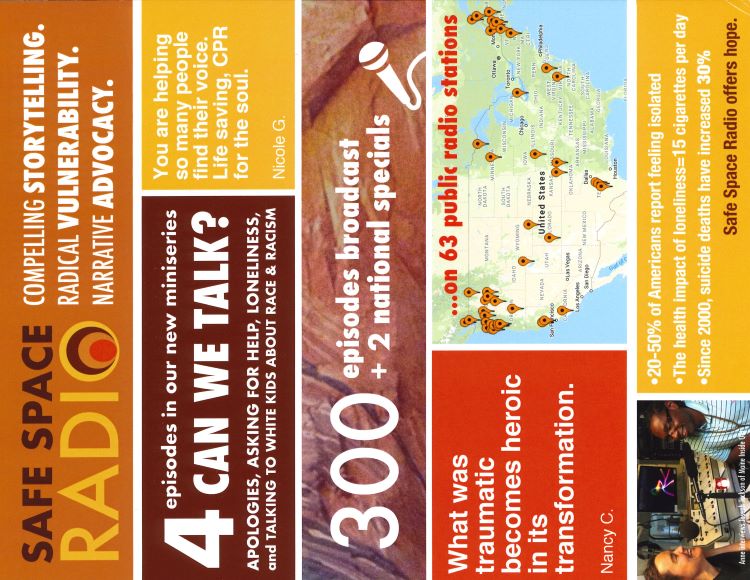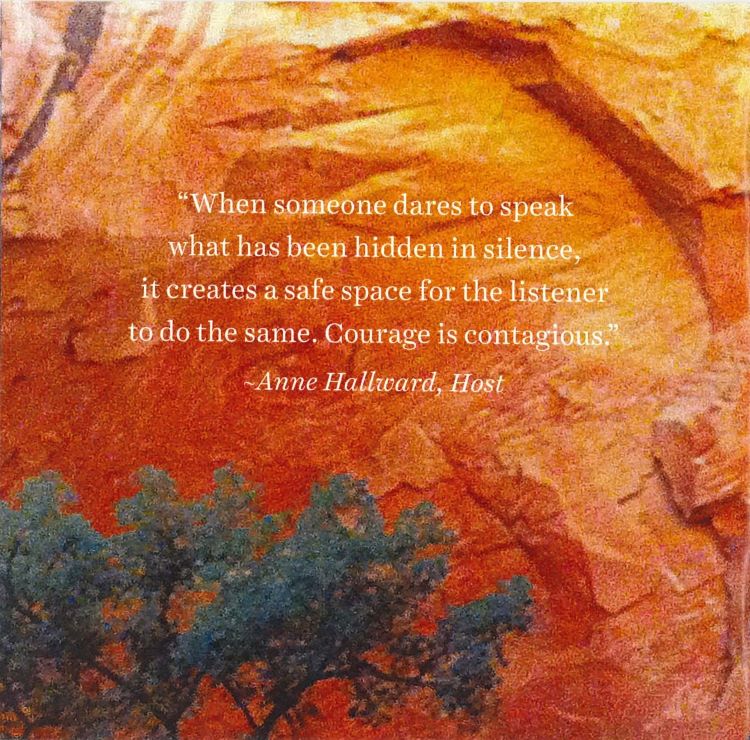
Safe Space Radio was founded in 2008 by psychiatrist Anne Hallward as a half-hour live interview radio show on WMPG Portland community public radio. The show was hosted by Hallward and covered socially stigmatized topics in areas such as mental health, sexuality, family, and social justice. The show changed to a pre-recorded, edited format in 2013. In 2016, the show left WMPG and began creating hour-long specials that were broadcast by various NPR stations across the United States. Podcasts were developed into continuing education courses for healthcare professionals. The last new interviews aired in 2019, and in 2022 Safe Space Radio officially ceased production. Safe Space Radio won the Maine Association of Broadcasters award in Public Affairs four times. Hallward received multiple awards for her work on Safe Space Radio, including the National Alliance on Mental Illness Exemplary Psychiatrist of 2013, the Maine Association of Psychiatrists Ulrich B. Jacobsohn Lifetime Achievement Award (2016) and the National Association of Women Psychiatrists Jeanne Spurlock Social Justice Award (2016).

The Safe Space Radio records, 2008-2024 (inclusive), consist of over 300 digital audio recordings and transcripts of broadcast and podcast episodes. Episode topics include mental illness (specifically depression, anxiety, PTSD, suicide, bipolar disorder, schizophrenia, and trauma), the Maine Wabanaki-State Child Welfare Truth and Reconciliation Commission, family dynamics and parenting, death and dying, dementia, race, child abuse, dealing with difficult emotions (specifically shame, loneliness, fear, and failure), sexual health, substance abuse, eating disorders, and violence against women. Episodes also discuss the experiences of transgender people, formerly incarcerated people, LGBTQ youth, and Somali refugees in Maine. There are also analog promotional and educational materials and an archived copy of the URL safespaceradio.com.
For more information on the Safe Space Radio records, please view the collection’s online finding aid. For information about accessing the collection, please consult the Center’s website or email Public Services.
Accessible Version of the Infographic
Safe Space Radio
Compelling Storytelling. Radical Vulnerability. Narrative Advocacy.Four episodes in our new miniseries Can We Talk?: "Apologies," "Asking for Help," "Loneliness," and "Talking to White Kids About Race & Racism."
"You are helping so many people find their voice. Life saving, CPR for the soul." -Nicole G.
Three hundred episodes broadcast + two national specials on 63 public radio stations across the United States of America.
"What was traumatic becomes heroic in its transformation." -Nancy C.
- 20-50% of Americans report feeling isolated
- The health impact of loneliness=15 cigarettes per day
- Since 2000, suicide deaths have increased 30%
Safe Space Radio offers hope.